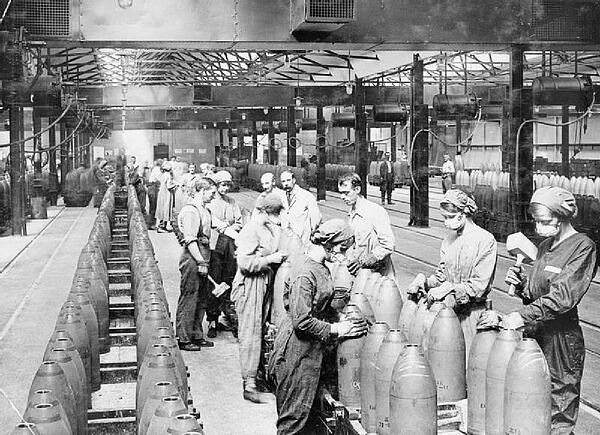Women in World War One
World War One played a significant role in the campaign women's political rights. The vital work carried out by women during World War One highlighted the injustice of not allowing them equal political rights to men. Therefore, the war contributed to the passage of the 1918 Representation of the People Act, but the Suffragettes’ activism before 1914 also played an important role.
During the war years women undertook jobs normally carried out by men and proved they could do the work just as well. Between 1914 and 1918, an estimated two million women replaced men in employment, resulting in an increase in the proportion of women in total employment from 24 per cent in July 1914 to 37 per cent by November 1918.

Why did women get the Vote?
Many argue that the war played a significant role in bringing about the 1918 Representation of the People Act because women had played such a valuable role. However, some historians believe that the importance of the war has been overstated. Historian Martin Pugh argues that the act would have come about anyway as the government was moving in that direction before the war.
As the government was close to bringing in the act before the war, it can be concluded that the activities of the Suffragists and Suffragettes pre-1914 played an important role in putting the issue on the political agenda.
It is also possible that Parliament was concerned that the pre-1914 militancy may return after the war. Women had done such important work during the war that any opposition to their calls for suffrage would have been greeted with shock. It seemed hypocritical that they could serve their country but not be offered the same political rights as men. The Bolshevik Revolution only increased the government’s fear of social unrest.
Although the war ultimately aided women’s fight for suffrage, many of the freedoms experienced during the war ended in 1918. With the troops’ return, many women found themselves out of work. The 1919 Restoration of Pre-War Practices Act forced most women to leave their wartime jobs. For some, this meant they had to return to life in the home.
See also: The Women's Party
MLA Citation/Reference
"Women in World War One". HistoryLearning.com. 2026. Web.
